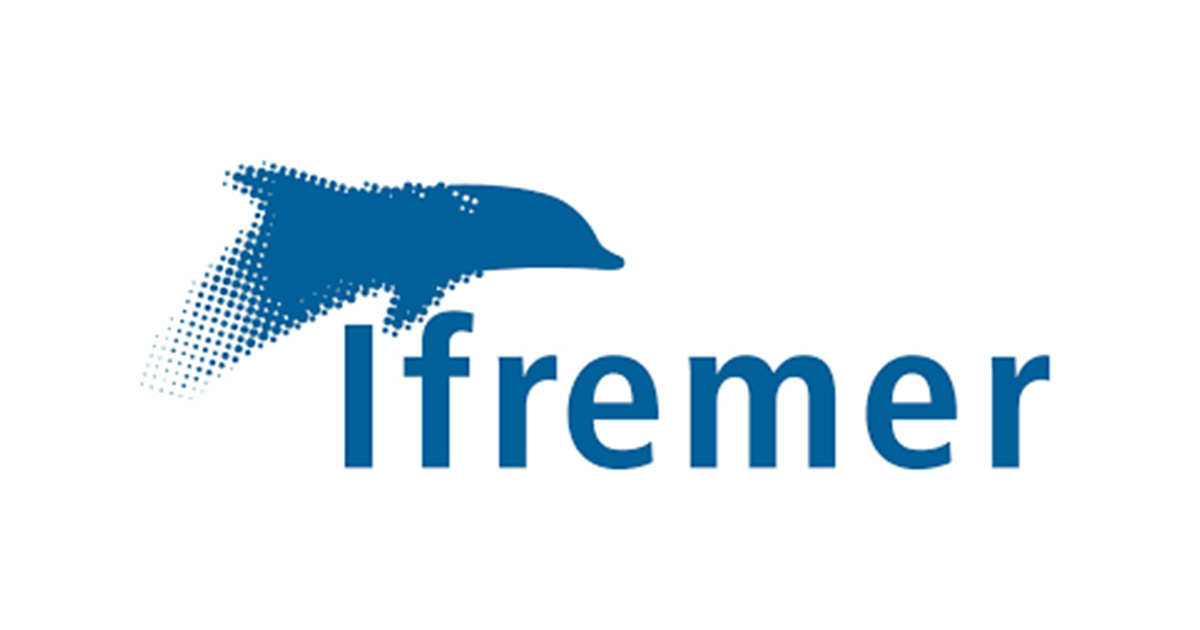A pioneer in ocean science, IFREMER’s cutting-edge research is grounded in sustainable development and open science. Our vision is to advance science, expertise, and innovation to:
- Protect and restore the ocean
- Sustainably use marine resources to benefit society
- Create and share ocean data, information & knowledge
With more than 1,500 personnel spread along the French coastline in more than 20 sites, the Institute explores the 3 great oceans: the Indian, Atlantic, and Pacific oceans. A leader in ocean science, IFREMER is managing the French Oceanographic Fleet and its dedicated scientists create ground-breaking technology to push the boundaries of ocean exploration and knowledge, from the abyss to the atmosphere-ocean interface.
Well-established in the international scientific community, our scientists, engineers, and technicians are committed to advance knowledge about our planet’s last unexplored frontiers. They provide the science we need for informed decision-making and public policy, and they transfer this knowledge and technology to businesses to fulfill public and private needs. Core to our mission is also to strengthen public awareness about the importance of understanding the ocean and its resources, and empowering future generations of leaders through education and outreach national campaigns.
Founded in 1984, IFREMER is a French public organization, and its budget approximates 240 million euros. It is operating under the joint authority of the French Ministry for Higher Education, Research, and Innovation, the French Ministry of the Sea, the French Ministry for the Ecological and Solidary Transition, and the French Ministry of Agriculture and Food.
General areas of responsibility
The Channel & North Sea Fisheries Research Unit (Unité Halieutique Manche Mer du Nord, HMMN) investigates the dynamics of marine fisheries, ecosystems and biodiversity, subject to fisheries pressure and other human activities in a global change context and evaluates management strategies to mitigate the impact of these pressures.
HMMN hosts three technological facilities: a National Sclerochronology Center, a Trophic Ecology Platform, and a Zooplankton Taxonomy and Ecology Platform.
Under the leadership of the Head of the Channel and North Sea Fisheries Research Unit (HMMN), based in the fisheries laboratory in Port en Bessin, he/she will conduct research into the dynamics of exploited populations in a highly anthropized context, where the information available on the species under consideration is limited. He/she will also seek to understand the effects of multiple impacts on these resources. To this end, he/she will conduct research on individual variability in life-history traits (growth, age at sexual maturity, etc.) and on communities (main trophic links). This knowledge will feed into the development of stock assessment models (data-limited stocks: DLS) that can be used to simulate management strategies, in a context of global change. The stocks concerned will be those exploited by coastal fisheries operating on the Atlantic seaboard (Channel-North Sea, and Saint-Pierre et Miquelon), in diversified exploitation contexts (e.g., impacts of offshore wind farms, impacts of pollutants on fishery resources in the Bay of Seine, sea cucumber exploitation in Saint-Pierre et Miquelon). He/she will work in a network with other DLS scientists in French waters (mainland France and overseas).
The main mission is to improve our knowledge of pollock, certain bivalves, whelks and cephalopods in the English Channel and North Sea, and of cod, salmon and sea cucumbers in Canadian waters including the French territory of Saint Pierre et Miquelon.
This knowledge will help to improve estimates of the health of these populations and the levels of sustainable exploitation. This information will also feed into models for evaluating fisheries management strategies in a context of global change and at various spatial scales (wind farms, aggregate extraction, climate change, contaminants, new regulations such as Brexit) on the Eastern Channel ecosystem.
Principal activities
- Develop knowledge of the biology of species (life-history traits, position in the food chain, etc.) that are exploited in the Channel-North Sea and North-West Atlantic (pollock, bivalves, salmon, sea cucumbers, etc.), but are still poorly monitored.
- Contribute to the modeling of the dynamics of these data-limited resources, known as DLS, in interaction with European and British organizations, as well as Canadian ones, within the framework of international fisheries management organizations (ICES, NAFO, Franco-Canadian Treaty, Granville Agreements, etc.). He/she will be required to develop and discuss the models used to monitor DLS, applied in the various French fishing zones around the world (mainland France and overseas).
- Contribute to the assessment of the impact of fishing and other multiple pressures on these stocks (shipping, marine renewable energies, mineral extraction, port development, aquaculture, tourism, contaminants, Brexit, etc.).
- Use new data (from video observation, artificial intelligence, autonomous sensors, etc.) to acquire knowledge and integrate it into models.
- Respond to institutional referrals in his/her field of expertise and contribute to the dialogue supported by Ifremer within professional circles
- Contribute actively to the development and management of projects and the valorization of scientific results
- Collaborate with other researchers and engineers, and supervise technicians, trainees, doctoral students, and post-doctoral students
Collaborative work environment
- Internal collaborative relationship
HMMN team, other research units from the RBE department (HALGO, BIODIVAL, AMURE, UL, HISSEO, MARBEC, DOI)
- External collaborative relationship
ICES research community, NOAA fisheries, Fisheries and Oceans Canada (DFO-MPO), CEFAS, ILVO…
Required Knowledge, skills, and characteristics
- PhD in fisheries science / numerical ecology / fisheries science
- Postdoctoral experience
Knowledge, skills, and abilities
- Advanced knowledge in statistical analysis and modeling
- Capacity to understand the details of, and to apply, complex models
- Good practical knowledge of R, or another programming language
- Good knowledge of modern statistical methods
- English is a prerequisite
Human qualities
- Taste for multi-disciplinarity and team work
- A sense of organization and autonomy
- Capacity to lead a project
- Good communication skills (oral/written)
Specific working conditions
- Full-time
- Travelling in France and abroad
- Sea research campaigns





